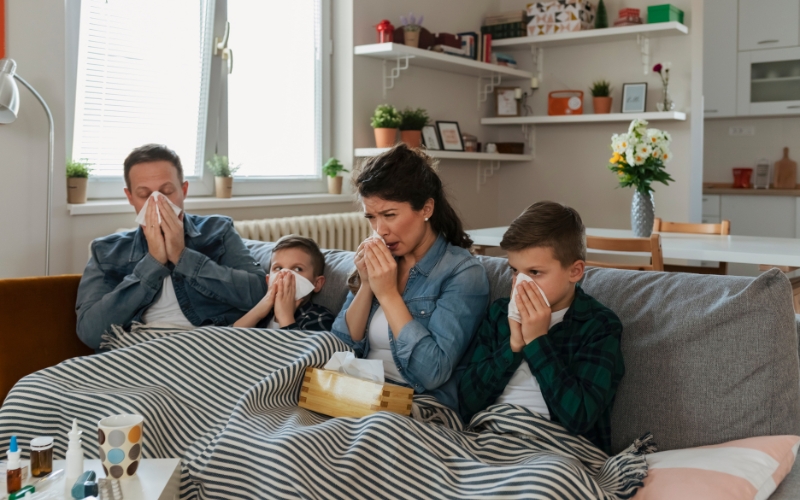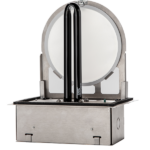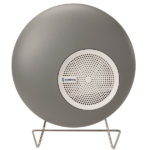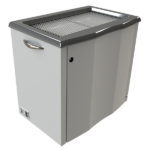As a culture, we spend a lot of time thinking about outdoor pollution and environmental conservation and rightfully so. But the quality of the air we breathe indoors can often take a back seat. According to the EPA, we spend 90 percent of our lives indoors, and what most don’t realize is the air we breathe indoors can have a massive impact on our health, well-being, and overall quality of life.
The Hidden Danger Behind Poor Indoor Air Quality
Indoor air pollution is often called the “hidden danger” because it isn’t as visible as outdoor air pollution. You generally don’t see it, smell it, or feel it like you might with pollutants outdoors such as smog or industrial emissions. But make no mistake; it’s there, lurking in the background.
Common Indoor Pollutants
- Volatile Organic Compounds (VOCs): These can come from various products in our homes or businesses, such as paints, cleaning supplies, and furniture. Breathing in VOCs can lead to a wide range of health problems, from short-term irritation to long-term respiratory issues.
- Dust and Other Allergens: Dust mites, pet dander, and pollen are just a few of the things that can accumulate indoors, triggering allergies and asthma.
- Mold and Mildew: Excess moisture can lead to the growth of mold and mildew, and those can cause respiratory problems and exacerbate existing allergies.
- Carbon Monoxide (CO): This deadly gas can leak from gas stoves, fireplaces, and heating systems if not properly maintained.
- Radon: A naturally occurring radioactive gas that can seep into homes and increase the risk of lung cancer.

Health Implications
The link between poor indoor air quality and adverse health effects is well-documented. Prolonged exposure to indoor pollutants can lead to a range of health problems.
- Respiratory Issues: Indoor air pollution can aggravate conditions such as asthma and chronic obstructive pulmonary disease (COPD). Even in healthy individuals, it can cause coughing, wheezing, and shortness of breath.
- Allergies: Allergens like dust mites, pet dander, and mold can trigger allergic reactions, leading to sneezing, itching, and congestion.
- Headaches and Fatigue: Poor air quality can cause headaches and make you feel tired and sluggish.
- Cardiovascular Problems: Some indoor pollutants, like fine particulate matter, have been linked to heart problems, including heart attacks and strokes.
- Cancer: Radon, a common indoor air pollutant, is a known carcinogen that can increase the risk of lung cancer.
Productivity and Well-Being
The impact of indoor air quality extends beyond physical health; it can also impact our mental and emotional well-being. Poor indoor air quality can lead to a range of problems.
- Reduced Productivity: Breathing clean air can improve cognitive function, decision-making, and overall productivity. On the flip side, poor air quality can lead to decreased concentration and lowered energy.
- Quality of Sleep: A good night’s sleep is essential for overall well-being. Indoor pollutants can disrupt sleep patterns, leading to insomnia and restlessness.
- Mood and Stress Levels: Clean air can promote a positive mood and reduce stress. In contrast, exposure to pollutants can lead to irritability and anxiety.
Solutions to Improve Indoor Air Quality
We know the importance, now how to do you fix it?
- Proper Ventilation: This is a big key. Regularly open windows and doors to let in fresh air and let the stale air out.
- Control Humidity: Use dehumidifiers to control moisture levels and prevent mold growth.
- Regular Cleaning: Dusting and vacuuming can help remove allergens, while cleaning and maintenance of your HVAC systems can prevent the buildup of pollutants.
- Synexis® Systems: Synexis utilizes Dry Hydrogen Peroxide (DHP®), which works continuously to reduce the level of microbes in any type of facility from the air and on surfaces while following air flow. Nobody has to leave the room as it works behind the scenes.
The air we breathe indoors has a massive impact on basically every aspect of our lives. Indoor air quality should not be an afterthought, but rather a primary concern. By understanding the hidden dangers, health implications and the solutions to improve your indoor air quality, we can help to improve the quality of life wherever we go.
To speak with an IAQ expert from Synexis,, fill out this form and we’ll be in touch as soon as possible.
And to learn more about Synexis, click here.

















